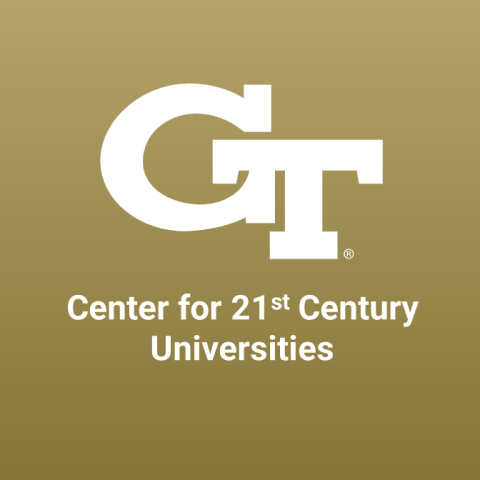
How to create K-12 programmes to boost belonging and participation
Growing up, summer learning and after-school programmes allowed me to explore areas such as poetry, sports and volunteerism. I always looked forward to these experiences and to connecting with the adults who worked in these spaces.
These programmes helped shape who I am today: the director of expanded learning programmes at Georgia Tech’s K-12 educational outreach and research centre; a doctoral student at the University of Pittsburgh majoring in learning sciences and policy with a focus on out-of-school learning; and a Black man who is passionate about service and mentoring youth.
- A case study in developing the next STEM generation
- What is needed to run a successful outreach programme?
- How can universities get more school pupils enthusiastic about science?
Higher education institutions can connect with young people early in their lifelong learning journey, even though most of the learning we encounter in our lives happens in informal settings such as extracurricular activities and on-the-job training. Attending programmes outside the traditional school day (and later my work and doctoral research) nurtured my interests and helped me to see that learning is lifelong and occurs in multiple settings. From my personal experiences and what I see in my current practice, I have identified three key elements that are essential when higher education professionals are developing K-12 programmes.
Create a K-12 programme that fosters positive relationships
The foundation for out-of-school programmes should be a safe, secure environment. The Georgia Statewide Afterschool Network (GSAN) standards state that a quality programme fosters positive relationships and interactions among staff, youth, families and communities; provides a tolerant and respectful environment safe from teasing, bullying and violence; and promotes diversity and offers a solid framework.
Young people connect with adults who are caring and genuinely curious about their interests. So, when creating K-12 programmes, organisers should recruit staff and volunteers who are attentive to youth needs and enjoy working with youth. I often ask applicants: why do you want to work or volunteer here? Why is this work important? And why do you want to engage with youth?
To ensure a community culture that is welcoming, inclusive and supportive of diverse youth, programme organisers must reinforce the importance of positive relationships with youth with concrete examples during their professional development, focusing on asset versus deficit language and a positive mindset when engaging with youth, for example. To build positive relationships with families entrusting their children to our care, programme organisers should look to families as partners in supporting their students’ successes.
To develop positive relationships among young people, offer youth team-building activities and opportunities to build community through structured and unstructured times, such as reminding students to focus on positive group dynamics or encouraging them to meet new people during mealtimes.
As a child attending out-of-school programmes, I made lifelong friendships and mentor relationships. These mentors helped me develop socially and emotionally, guided me and encouraged me throughout my youth. The positive relationships I formed inspired me to pursue a career providing similar experiences for young people.
Build in opportunities for young people to explore their interests
Offering youth both voice and choice are key to encouraging exploration and keeping students engaged. Let your participants choose some of their activities and provide feedback on the programming. We consistently ask students what they like and don’t like, and what they find engaging. This feedback allows us to tailor programmes towards students’ interests.
Consider inviting campus community members to engage with your students through visits to research labs and facilitate discussions with undergraduate and graduate students about their majors and future careers.
Exploring ideas, concepts and wonderings in low-stakes environments allows students to engage in meaningful ways with their interests. There are no tests, and attendance is not mandatory, so if students decide they do not like something, they can try something else. Or if they decide that they love something, they can dig deeper into these concepts.
Reciting an original poem in front of hundreds of attendees at a community event as part of an after-school programme was my first public speaking opportunity. At another, we engaged with community organisations in our city. My love of service and volunteerism was developed through my involvement in this programme.
Establish a sense of belonging
As a young person in these programmes, I felt that I belonged. I attended a Young, Black, Gifted and Talented programme. We learned about Black history, Black culture and the contributions of Black people to the world. It highlighted people who looked like me and showed me that I could achieve my goals, such as graduating from college and pursuing advanced degrees. That programme was so important to my development and identity as a Black man.
To develop students’ sense of belonging, organisers should ensure that programmes are a safe place for all. Encourage students to show up authentically as themselves. Recognise the uniqueness of all students but also celebrate their diversity.
To help this, we incorporate the Collaborative for Academic, Social, and Emotional Learning (CASEL) Framework for Social and Emotional Learning (SEL) into all our programmes. We embed aspects of the framework through lessons that our staff teach participants, including self-awareness, self-management, responsible decision-making, relationship skills and social awareness. We also hire people who look like our students so that students can see themselves in the staff, mentors and volunteers. We highlight students’ successes and encourage them when they fail.
In my current position, I integrate my personal lived experiences, best practices I have witnessed over the past 22 years as a youth development professional, and current research trends into the programmes I direct. Out-of-school programmes do not have the curricular restraints that formal education environments have and thus allow organisers to tailor their curriculum to the needs of the participants.
Positive relationships, interest/career exploration and ensuring a sense of belonging are integral to these programmes being a success and inspiring the next generation of young people to learn a skill, develop a hobby or explore an area of interest. In youth development, we say young people vote with their feet, expressing their likes or dislikes for an out-of-school experience by attending and voluntarily participating.
Institutions of higher education are traditionally known for educating undergraduate and graduate students as they prepare for careers in their respective fields. However, when young people are beginning to explore who they want to be and where they want to spend their time, as higher education professionals we can play an important role in helping to shape their decisions by offering programmes outside the traditional school day. We can support young people as they pursue their passions, ambitions and interests – which then helps shape their lifelong learning journey before they enrol in our institutions as students.
Sirocus Barnes is director of expanded learning programmes in the Center for Education Integrating Science, Mathematics, and Computing at Georgia Institute of Technology.
If you would like advice and insight from academics and university staff delivered direct to your inbox each week, sign up for the Campus newsletter.




